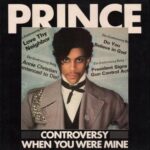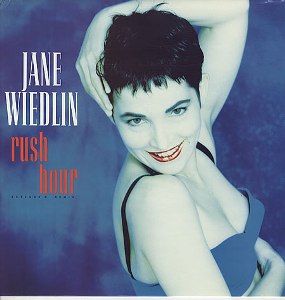 Prince Rogers Nelson had a way of writing songs that felt at once deeply personal and yet universally relatable, songs that could be heard in different lights depending on who was listening and what they were going through. “When You Were Mine,” a track from his 1980 album Dirty Mind, is one of those songs that showcases his uncanny ability to turn vulnerability, longing, and heartbreak into something both catchy and devastating. Unlike some of his more extravagant or explicitly sexual tracks, this one hides its pain beneath a deceptively upbeat melody and jangly pop energy. It’s one of those moments in Prince’s catalog where his brilliance is laid bare in a deceptively simple package, and it’s no wonder the song has gone on to be cherished by fans and covered by artists across genres. To understand “When You Were Mine” is to look into Prince’s early artistry, his blending of sounds, and the way he could take something as raw as jealousy and regret and transform it into a pop masterpiece.
Prince Rogers Nelson had a way of writing songs that felt at once deeply personal and yet universally relatable, songs that could be heard in different lights depending on who was listening and what they were going through. “When You Were Mine,” a track from his 1980 album Dirty Mind, is one of those songs that showcases his uncanny ability to turn vulnerability, longing, and heartbreak into something both catchy and devastating. Unlike some of his more extravagant or explicitly sexual tracks, this one hides its pain beneath a deceptively upbeat melody and jangly pop energy. It’s one of those moments in Prince’s catalog where his brilliance is laid bare in a deceptively simple package, and it’s no wonder the song has gone on to be cherished by fans and covered by artists across genres. To understand “When You Were Mine” is to look into Prince’s early artistry, his blending of sounds, and the way he could take something as raw as jealousy and regret and transform it into a pop masterpiece.
Released on Dirty Mind, “When You Were Mine” arrived during a transitional moment for Prince. Up until then, he had been bubbling just under the mainstream radar, already known for being a multi-instrumentalist, songwriter, and performer, but not yet the global icon he would soon become. Dirty Mind itself was a turning point: a daring, boundary-pushing record that mixed funk, new wave, R&B, rock, and punk energy into something that defied easy classification. Critics at the time didn’t always know how to categorize him—was he a funk artist, a pop star, a rock provocateur, or something else entirely? Prince himself didn’t care about fitting into categories, and “When You Were Mine” exemplifies that refusal. The song has all the hallmarks of a classic pop single—bright guitars, a steady beat, and a melody that lingers long after the track ends—but the lyrical content and Prince’s delivery give it a darker, more poignant edge.
Lyrically, the song is a straightforward tale of heartbreak and unrequited love. Prince sings about a former lover who has left him, not just for anyone else, but for another man. That narrative twist—where the singer watches his ex-girlfriend end up with someone else and admits he still loves her—feels both ahead of its time and deeply personal. The fact that Prince chose not to gender-flip the lyrics or rewrite the situation to fit a heteronormative narrative is especially telling. It opens the song up to interpretations about sexuality, jealousy, and the fluidity of desire. At its core, though, “When You Were Mine” captures that universal ache of wanting someone who no longer belongs to you, of watching them find happiness in someone else’s arms while you remain tethered to the past.
Musically, the track is built on simplicity, which is part of its genius. It has a power-pop backbone, influenced by new wave acts of the time, but filtered through Prince’s unique sensibility. The guitars are bright and chiming, reminiscent of bands like The Cars or Blondie, yet the groove is undeniably Prince. The bass drives steadily beneath the melody, while the keyboard flourishes add just enough color without overwhelming the structure. His vocals are restrained compared to his more flamboyant performances elsewhere in his discography. He sings it almost flatly at times, as though resigned to the heartbreak, which makes the pain behind the words feel even sharper. That vocal restraint allows the song to breathe, letting the melody do the heavy lifting while the lyrics sink in deeper with every listen.
What makes “When You Were Mine” so enduring is the way it disguises sadness within joy. It’s not a weepy ballad or a slow dirge; it’s a danceable, upbeat track that feels almost celebratory. That contradiction—the ability to cry on the dance floor—is one of Prince’s greatest gifts as a songwriter. Many artists can write love songs, but few can capture the complexity of feeling happy and devastated at the same time. In this sense, “When You Were Mine” belongs in the lineage of great bittersweet pop songs, where the music makes you smile while the lyrics quietly break your heart. It’s no accident that the song resonated strongly with listeners who felt caught between identities, emotions, or unspoken desires. It’s music that doesn’t simplify emotions but instead embraces their contradictions.
The song’s legacy was further cemented when Cyndi Lauper recorded her own version for her 1983 debut album She’s So Unusual. Lauper’s rendition is brighter and more new wave-driven, with her distinctive vocals emphasizing the yearning and pain in the lyrics. While Prince’s original version feels subdued, Lauper’s take is more direct, more confessional. For many listeners in the 1980s, her version was their first introduction to the song, and it helped broaden the reach of Prince’s songwriting before he became a household name. The fact that such a bold, idiosyncratic artist like Lauper chose “When You Were Mine” for her groundbreaking debut speaks volumes about the song’s emotional resonance and its adaptability across styles.
But while Lauper’s cover gave the song new life, Prince’s version remains definitive. It fits seamlessly within Dirty Mind, an album that blurred lines between lust and love, fantasy and reality, celebration and confrontation. The record as a whole was raw, recorded mostly at Prince’s home studio with minimal polish, and “When You Were Mine” benefits from that lo-fi edge. It doesn’t feel like a glossy pop single crafted by committee; it feels like a direct line from Prince’s heart to the tape. The intimacy of that recording process, combined with his willingness to bare his emotions without apology, gives the track its timeless quality.
There’s also a fascinating undercurrent to “When You Were Mine” when viewed through the lens of Prince’s larger career. For an artist who would later become known for his sensuality, bravado, and mystique, this song is strikingly vulnerable. It reveals the side of Prince that wasn’t about dominance or control but about loss and longing. He’s not the seducer here; he’s the one left behind. That humility, that willingness to admit weakness, makes the song stand out even more in a catalog filled with larger-than-life statements of power and sexuality. It shows that Prince, for all his confidence and charisma, understood what it meant to be on the losing end of love.
The influence of “When You Were Mine” can be traced through countless artists who followed. Its mix of pop structure, raw vulnerability, and understated production anticipated the indie-pop sounds that would dominate decades later. Artists like The Strokes, Phoenix, or even modern acts in the synth-pop revival owe something to the groundwork laid by tracks like this. Beyond its stylistic influence, though, the song set a precedent for honesty in songwriting. Prince didn’t hide behind metaphors or elaborate imagery here; he told a story plainly, and that plainness cut deeper than any poetic flourish could have.
For fans, “When You Were Mine” has often been a hidden gem, tucked between more famous tracks in Prince’s sprawling discography. It was never released as a single, never became the chart-topping hit it arguably deserved, but that’s part of its charm. It feels like a secret shared between Prince and his listeners, a song that reveals itself to those willing to dig deeper. When Prince performed it live, the song often took on new dimensions, sometimes faster, sometimes slowed down, always a reminder of its emotional core. Each performance seemed to underline just how personal it was to him, even years after its release.
Looking back, “When You Were Mine” serves as a reminder of just how ahead of his time Prince was in 1980. Pop music then was divided by genre boundaries, with radio stations carefully categorizing artists into R&B, rock, or pop slots. Prince ignored those divisions and made music that was wholly his own, even if it meant confusing the industry. By writing a song that was sonically indebted to new wave yet lyrically tied to soul-baring heartbreak, he was already pointing toward the genre-blending that would define the future of pop.
It’s also worth noting how the song resonates differently depending on who hears it. For some, it’s a story of heterosexual heartbreak. For others, it’s an anthem of queer longing, especially given that Prince left the gender dynamics of the story untouched. That openness is part of the brilliance—it allows listeners to project themselves into the song, to hear their own heartbreak mirrored back. In an era when mainstream pop rarely acknowledged anything outside of rigid gender roles, this subtle act of honesty felt revolutionary.
Ultimately, “When You Were Mine” stands as one of Prince’s finest compositions not because it was the flashiest or the most groundbreaking, but because it was honest, catchy, and timeless. It’s a song that feels as fresh today as it did over four decades ago, a testament to Prince’s ability to channel deep emotion through the simplest of pop frameworks. Whether heard on Dirty Mind, through Cyndi Lauper’s cover, or in countless live renditions, it remains one of those songs that sneaks up on you—one that makes you smile and dance while quietly reminding you of the sting of lost love. Prince left behind a massive legacy, filled with hits, experiments, and reinventions, but “When You Were Mine” is proof that sometimes, the most enduring art comes not from grandeur but from simplicity, from a three-minute pop song that captures the ache of a heart that still loves what it can no longer have.


